Canada
Work Permit Visa in Canada: A Guide
Canada's dynamic economy, welcoming culture, and superior standard of living attract skilled professionals from across the globe. Most foreign citizens need a work permit, a document issued by Immigration, Refugees, and Citizenship Canada (IRCC), to work lawfully in Canada. This guide covers the kinds of work permits, eligibility requirements, application procedures, and the steps to long-term residency.
Types of Canadian Work Permits
• Employer-Specific Work Permit
An employer‑specific work permit in Canada is intended for foreign nationals who have a confirmed job offer from a Canadian employer. Prior to applying, your employer usually needs to obtain a positive Labour Market Impact Assessment (LMIA) from Employment and Social Development Canada, proving that no Canadian or permanent resident is available to do the job. After the LMIA is authorized, you apply for your work permit on IRCC form IMM 1295, along with your job offer letter, LMIA decision letter, and proof of your qualifications. This permit ties you to that one employer, position, and location, providing certainty of employment but not the freedom to switch jobs without applying for a new permit.
• Open Work Permit
Conversely, an open work permit is much more flexible since it is not employer‑specific. The candidates who are eligible are spouses or common‑law partners of some skilled workers and international students, graduates who meet the Post‑Graduation Work Permit program requirements, and participants in some international exchange programs. Applicants also consist of individuals awaiting IRCC's decision on a permanent residence application under Express Entry and are eligible for the Bridging Open Work Permit. To receive an open work permit, you will have to prove stream-specific eligibility—such as evidence of your spouse's valid permit or graduation from a designated learning institution—while still having to complete the general application forms and security, medical, and biometrics requirements. After it is issued, you can work for the majority of Canadian employers right away and switch jobs as you please.
Eligibility Requirements
Irrespective of the category of permit, applicants must meet essential eligibility requirements. You must have a valid passport that extends the entire period of your planned stay in Canada. You must submit proof of your professional or academic qualifications—degrees, diplomas, licenses, or certificates—to match the job requirements. Proficiency in English or French language might be a prerequisite based on the stream, particularly for exchange programme participants. In most instances, medical clearance will be necessary for medical professionals, teachers dealing with children, or applicants whose sojourn exceeds six months. Police certificates from all the nations in which you lived for six months or more are required to establish admissibility, and you will need to demonstrate adequate financial resources to maintain yourself (and accompanying family members) upon entry.
Application Process
a)Employer‑Specific Work Permit
1 LMIA Application
Prior to your employer-specific permit application, your Canadian employer is required to secure a positive LMIA, which is formal approval by ESDC that your employment will not negatively impact the Canadian labor market. The process entails the employer providing proof of recruitment and giving information regarding the terms and conditions of the job, as well as the salaries.
2 Work Permit Application
Once you have been issued the LMIA, you fill out your application online (or at a Visa Application Centre, if necessary), form IMM 1295. You include the job offer letter, the decision document of the LMIA, and evidence of your qualifications, including academic records and professional licenses. You pay the work permit and biometrics fees and take your fingerprints and photo.
3)Processing & Decision
Processing times are dependent on your home country and details of your application; IRCC posts up-to-date estimates online. If your application is approved, you have a Port of Entry Letter of Introduction and, if necessary, a Temporary Resident Visa or Electronic Travel Authorization. You enter Canada with these documents, where you are issued the actual work permit.
b)Open Work Permit
1 Stream‑Specific Documentation
The open work permit stream you select dictates the supporting documents to be submitted. Spousal applicants submit marriage or partnership certificates with proof of their partner's valid Canadian permit. Post‑Graduation Work Permit candidates submit their diploma, transcript, and degree completion confirmation from a designated learning institution. Bridging Open Work Permit applicants include IRCC's receipt acknowledgment for their permanent residence application under an eligible program.
2. Online Application & Arrival
All open permit applications are submitted online using IMM 1295 and accompanied by biometrics and medical or police clearance, if required. Upon approval, you receive your open work permit electronically and can begin working immediately for most employers.
3. Required Documents
When you are preparing your application, make sure to gather all the important documents: a valid passport for the duration of your stay, filled IRCC forms, evidence of your current status in Canada if you are already within the country, your employment offer (for employer‑specific permits), educational documents, language test results (if required), police certificates, medical exam results (if required), proof of financial support, and passport‑style photos that comply with IRCC requirements. Omitting any of these items can result in processing delays or refusals.
4. Processing Times and Fees
Work permit processing times vary from a few weeks to several months based on your country and application stream. IRCC posts these estimates online and updates them regularly. As of 2025, the normal work permit processing fee is CAD $155 for each applicant, with CAD $100 added for open work permit holders and CAD $85 for biometrics per person (or CAD $170 for a family application). Medical examination fees and panel physician fees differ by country, while others—like some NAFTA professionals—are exempt from paying the work permit fee but still incur biometrics charges.
5. Maintaining Status and Extensions
In order to preserve legal status in Canada, you are required to apply to renew your work permit at least 30 days prior to it expiring. If you do so in timely fashion, you can continue employment under "implied status" until IRCC makes a determination. Employer‑specific permit holders will require a new job opportunity and perhaps an additional LMIA, while those holding open permits need to be eligible under one of the recognized streams to file for an extension.
6. Restoring Status
If your permit is about to expire when you make an extension application, you lose legal status. You then have a 90‑day restoration period in which to file both your restoration and extension applications together, but you cannot work during this time. Failure to restore status within 90 days may lead to removal proceedings.
Pathways to Permanent Residency
• Canadian Experience Class (CEC)
Highly skilled workers who have at least 12 months of full-time Canadian work experience in a target occupation can become permanent residents under the CEC stream of Express Entry.
• Provincial Nominee Programs (PNP)
Most provinces and territories have PNP streams for foreign workers in occupations with high demand. A provincial nomination usually necessitates a legitimate job offer and significantly increases your Express Entry CRS score.
• Federal Skilled Worker Program (FSWP)
The FSWP rewards points for age, education, work experience, and language ability. Canadian work experience and an offer of employment enhance your profile's competitiveness under Express Entry.
• Business Immigration Streams
There are distinct federal and Quebec-specific streams for entrepreneurs and investors, as there are regional pilots like the Atlantic Immigration Program and the Rural and Northern Immigration Pilot that promote settlement in targeted communities.
Tips for a Smooth Application
Start making preparations at least three months prior to your intended start date. Utilize IRCC's document checklists to guarantee completeness, submit online applications for faster processing and real-time status updates, and keep checking IRCC news for policy or procedural updates. For complicated cases, like where there are several LMIA applications or special eligibility concerns—think about seeking advice from a Regulated Canadian Immigration Consultant (RCIC) or an immigration attorney.
Conclusion
Working through Canada's work permit system can appear complicated, but becoming familiar with the differences between employer‑specific and open permits, meeting the qualifying requirements, and adhering to the set steps in applications will put you on a straightforward path. By retaining your status and considering permanent residence options like Express Entry or PNP, you can establish a successful career and life in Canada, contributing your talents to a rich and vibrant economy while establishing your long‑term future.



 By
By